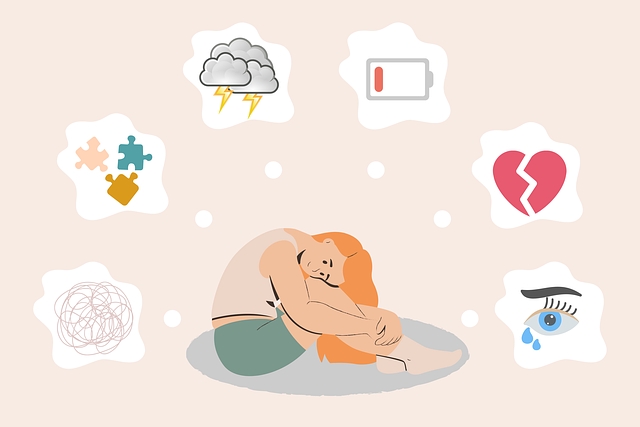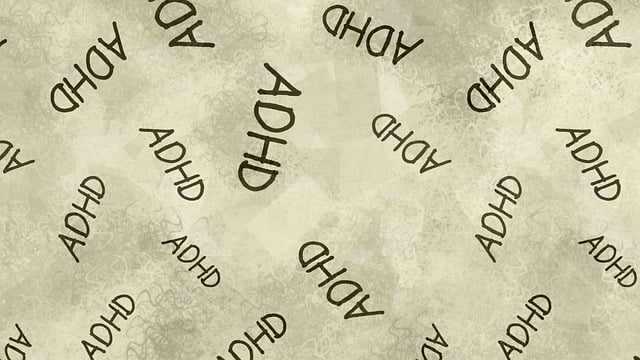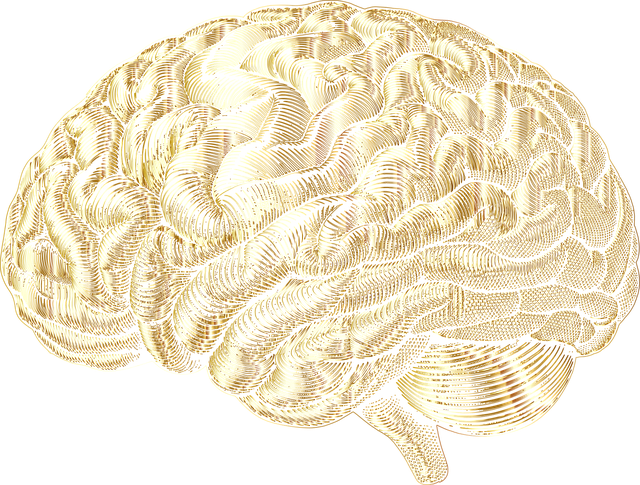TL;DR:
Managing Littleton Panic Disorder and Anxiety Attacks requires understanding and regulating mood through therapy, self-care, and public awareness. Anxiety attacks are prevented by aligning emotions with current situations, avoiding overwhelming coping mechanisms. Therapy, like Cognitive Behavioral Therapy (CBT) and exposure therapy, teaches individuals to control emotional responses. Mindfulness, mental wellness journaling, trauma support, and risk assessment tools further enhance well-being and reduce symptoms. Consistent practice of these tailored strategies is key to managing and preventing panic disorders and anxiety attacks.
Mood regulation is a vital skill, especially for those navigating anxiety attacks or panic disorders. This comprehensive guide explores effective strategies to manage these conditions, offering a roadmap to better mental well-being. We delve into understanding the core principles of mood regulation and its profound impact on daily life. Through evidence-based practices, such as Littleton Panic Disorder and Anxiety Attacks Therapy, this article provides practical tools to incorporate coping mechanisms seamlessly into your routine, fostering resilience and enhanced emotional control.
- Understanding Mood Regulation and Its Importance
- Strategies for Managing Anxiety Attacks and Panic Disorders
- Incorporating Effective Coping Mechanisms into Daily Life
Understanding Mood Regulation and Its Importance

Understanding mood regulation is crucial for maintaining mental well-being and managing conditions like Littleton Panic Disorder and Anxiety Attacks. Mood refers to our emotional state, which influences how we perceive and interact with the world around us. Regulation involves the conscious effort to manage and stabilize these emotions, ensuring they align with current situations and do not overwhelm our coping mechanisms.
Effective mood regulation is essential for enhancing quality of life and mitigating symptoms associated with anxiety disorders. Therapy plays a vital role in teaching individuals strategies to identify and control their emotional responses. Through techniques tailored to specific needs, such as those offered in Littleton Panic Disorder therapy, individuals can learn to prevent or effectively manage anxiety attacks. Alongside therapy, public awareness campaigns development and self-care practices contribute significantly to stress management, fostering a healthier emotional landscape.
Strategies for Managing Anxiety Attacks and Panic Disorders

Managing anxiety attacks and panic disorders can significantly improve one’s quality of life. Therapy plays a pivotal role in addressing these issues, especially for individuals diagnosed with Littleton Panic Disorder. Cognitive Behavioral Therapy (CBT), a renowned approach, centers on identifying and modifying negative thought patterns that contribute to fear and anxiety. By teaching individuals to challenge distorted thinking and change their behaviors, CBT empowers them to gain control during panic attacks.
The Mind Over Matter principles are particularly effective here, encouraging clients to reframe their reactions and perceptions. This strategy, coupled with exposure therapy, where patients gradually confront feared situations in a safe environment, has proven successful in reducing anxiety symptoms. Moreover, integrating these practices into one’s routine can foster mental wellness and enhance overall resilience against panic disorders and Anxiety Attacks Therapy.
Incorporating Effective Coping Mechanisms into Daily Life

Incorporating effective coping mechanisms into daily life is a vital component of managing and preventing anxiety disorders like Littleton Panic Disorder and Anxiety Attacks. Therapy plays a crucial role in teaching individuals tailored strategies to navigate their symptoms. Through consistent practice, these coping techniques become powerful tools for self-regulation. Mental wellness journaling exercises, for instance, can help individuals track triggers, identify patterns, and gain insights into their emotional responses, fostering better awareness and control.
Trauma support services also offer valuable guidance in developing robust coping mechanisms. By addressing underlying trauma, professionals can help individuals process and manage anxiety symptoms more effectively. Moreover, risk assessment tools are essential for mental health professionals to implement appropriate interventions, ensuring a comprehensive approach to treating anxiety disorders and enhancing overall well-being.
Mood regulation is a powerful tool for improving mental well-being, especially in managing conditions like Littleton Panic Disorder and Anxiety Attacks. By understanding the importance of emotional control and employing effective strategies from therapy sessions, individuals can navigate their moods with greater ease. Incorporating coping mechanisms into daily routines allows for proactive management of anxiety, fostering a sense of calm and resilience. With consistent practice, these techniques can revolutionize one’s approach to mental health, offering a path towards a more balanced and fulfilling life.














